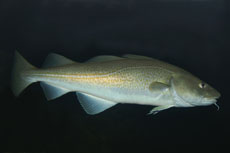
An international symposium, Rebuilding Collapsed Fisheries and Threatened Communities, was held in Bonne Bay, Newfoundland and Labrador, October 1-4, 2012. Bonne Bay is in the heart of Gros Morne National Park, a UNESCO World Heritage Site in western Newfoundland, and the home of Memorial University's Bonne Bay Marine Station.
The Rebuilding Symposium took place 20 years after the collapse of several groundfish stocks in Eastern Canada. Despite a broad array of interventions, including government investments, prolonged moratoria, reduced quotas and industry restructuring, the fish stocks, adjacent communities and the industry as a whole remain vulnerable. In many rural communities of Newfoundland, people have been forced out of the industry, temporary and permanent outmigration of people from fishery dependent families continues and, despite efforts to diversify, the local economies remain weak.
The Newfoundland situation is not unique. The past several decades have witnessed both spectacular and devastating stock collapses as well as less visible problems with resource degradation that have had sustained effects on fishery-dependent communities and marine ecosystems in many parts of the world. Delayed and incomplete rebuilding can threaten the contribution of capture fisheries to food security, livelihoods and employment and industrial and community resilience. Too often, these delays mean that the people and communities that depended upon collapsed fisheries are not in a position to benefit from the sacrifices they have made to support stock rebuilding. There are many possible reasons for this, including: fishing industries change in the wake of stock collapses, as do market opportunities and the sourcing of fish supplies and products; youth and even adults are often forced to leave the industry and their communities to find work and may face steep economic and regulatory barriers to re-entry; science and management institutions may be under-resourced and poorly designed for sustainable management of rebuilt fisheries.
Experience shows that it is often difficult to rebuild collapsed fisheries (stocks and fishing communities) - indeed, while Jentoft and Chuenpagdee (2009) have argued that fisheries governance is a wicked problem, Khan and Neis (2010) have argued that rebuilding collapsed fisheries is particularly wicked. These challenges are likely to increase in the future due to the effects of climate change (changing ocean temperatures, currents and acidification), invasive species, increasing population and development pressures in coastal areas, the effects of intensive aquaculture and increasing technological efficiency, changing markets, growing scientific uncertainty and dwindling investments in science and governance.
The Rebuilding Collapsed Fisheries and Threatened Communities International Symposium was a multi-stakeholder event that took a problem-solving approach to defining and addressing this particularly wicked problem. It brought researchers from multiple disciplines and from different regions of the world together with industry, government and fishery community representatives to do this work. The Symposium provided an opportunity to explore lessons learned from efforts to rebuild Eastern Canadian and other fisheries (including stocks, industries, communities and regional economies). It had three main objectives:
- to deepen our understanding of why equitable and sustainable rebuilding of collapsed fish stocks and fishery-dependent industries and communities is so difficult;
- to explore the longer and shorter term risks collapsed fisheries pose to other fisheries and to the resilience of fish and invertebrate populations, marine ecosystems, fishing industries and communities; and,
- to identify policies and strategies for sustainable rebuilding from oceans to plate through better knowledge of fish populations and invertebrates and marine ecology; greater attention to fleet, processing, marketing and community and regional level issues and opportunities; that support and draw upon local marine resources as well as the heritage, knowledge and other resources in fishery-dependent households and communities; are resilient to change; are multi-generational in their orientation, and that address the combined needs of efficiency, equity, effective decision-making and uncertainty.
The Symposium was organized and hosted by the Community-University Research for Recovery Alliance (CURRA). The CURRA is housed at the Bonne Bay Marine Station and its members include social and natural scientists, humanists, artists, and multiple community, industrial and government partners. CURRA members have spent the past five years exploring rebuilding challenges in Newfoundland's west coast fisheries and seeking to identify innovative strategies for tackling these challenges.
